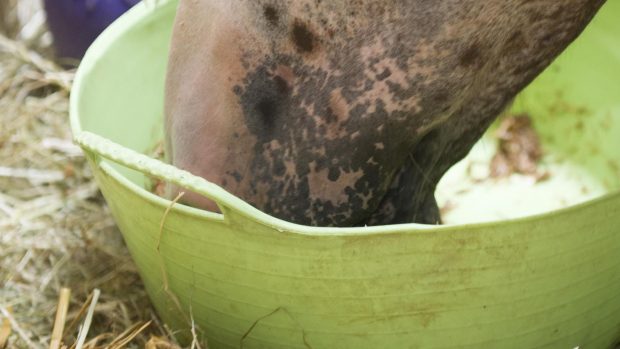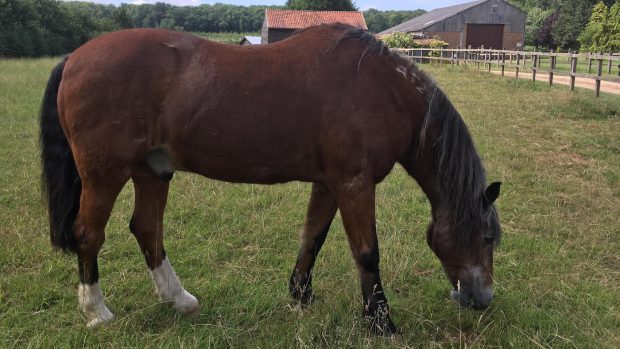Most horse owners look forward to the summer months — longer days, good weather, and not sloshing through knee-deep bogs to catch horses. But for owners of good doers, the summer also brings stress as they struggle to keep the weight from piling onto their horses. We asked equine nutritionists if balancers can be employed to keep those horses healthy without adding weight.
Lizzie Drury, the senior nutritionist with Saracen, says: “Yes, a feed balancer can help to provide a balanced ration and meet the micronutrient requirements, without the excess calories that would be provided by feeding a traditional mix or cube when fed at the minimum level to ensure sufficient intake of vitamins and minerals.”
Katie Grimwood, BSc (Hons), Bailey’s Horse Feeds’ nutrition advisor, adds: “A common mistake when feeding the overweight or ‘good-doer’ horse or pony is to feed just a handful of a cube or mix or, worse still, nothing at all. This course of action will lead to a severe lack of nutrients which will likely result in a detrimental effect to health and performance long term. The solution here is to feed a low-calorie feed, such as a concentrated pelleted forage balancer. Balancers provide all necessary nutrients with absolute minimal calories and are fed in very small quantities (usually by the mug-full).
They also have the added bonus of higher levels of quality protein compared to a powdered broad-spectrum vitamin and mineral supplement, and this is particularly beneficial when pasture access may be reduced. Feeding a balancer will give you the peace of mind that your horse is getting what he needs, especially if he or she is healing, working/competing, pregnant or growing.”
Of course, the owner might question whether or not they should be giving their good doer a hard feed of any sort. It seems logical to cut as much feed as you can, but Clare Barfoot, RNutr, the marketing, research, and development director at Spillers, counters: “This may seem a logical approach but unfortunately grass can’t be relied upon to provide a balanced diet. In this situation extra calories are not needed nor desirable, so a balancer provides the ideal solution, balancing the diet with negligible calories. Providing a balanced diet through the summer months is a good insurance policy for your horse or pony to enter the winter healthy and with good coat and hoof condition. Restrict calories not nutrients!”
Article continues below…
You might also be interested in:

How to choose the right feed balancer for your horse

Subscribe to Horse & Hound magazine today – and enjoy unlimited website access all year round
Not all balancers will suit the good doer, as some are designed to improve digestive efficiency. Kate Hore, RNutr (Animal), the registered nutritionist with NAF, emphasises: “For those that live on fresh air, look for a balancer appropriate to their needs, designed to keep them slim throughout the summer rather than designed to maintain condition. These equines may not require the pre and probiotics included in many balancers — after all, the gut support is there to help your horse metabolise his feed efficiently, but good doers usually don’t need any help in that department! Instead look for a product that actively supports metabolism, to help them keep their girth healthy and trim.”
Would you like to read Horse & Hound’s independent journalism without any adverts? Join Horse & Hound Plus today and you can read all articles on HorseandHound.co.uk completely ad-free.






